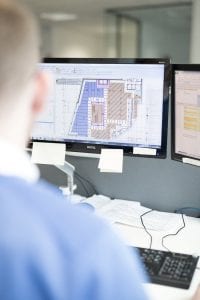 Linesight has extended its reach as a provider of professional services to the construction industry into mainland Europe and beyond in reaction to the downturn in the domestic market in 2008. Here, director Paul Butler shares some pointers on how to gain a foothold in key eurozone markets:
Linesight has extended its reach as a provider of professional services to the construction industry into mainland Europe and beyond in reaction to the downturn in the domestic market in 2008. Here, director Paul Butler shares some pointers on how to gain a foothold in key eurozone markets:
When working with multinationals in particular, first and foremost you have to be flexible. You have to adapt to the client’s needs in local markets. This means being willing to travel and being available at whatever time the client needs to deal with you. Our senior people travel over and back regularly to meet clients in eurozone markets.
In order to be really successful in eurozone markets, it is vital that you also have a presence on the ground, whether that is a subsidiary company, an office or a dedicated team based in the market. In the Netherlands, we have a dedicated team of 30 people, 95% of whom are based there full-time and integrated into the local community and tax system. There are generous tax incentives for people working in the Netherlands with professional accreditation, such as chartered surveyors or engineers.
It is important to gain a good understanding of local regulations and codes of practice for the industry you are operating in. This is best achieved by becoming part of the local environment with your on-the-ground presence.
The Irish mentality of “getting the job done” is key to success in mainland Europe. Irish companies are used to dealing with multinationals and working 10 to 12-hour days if necessary to make sure a job is completed on schedule. Clients really appreciate this. You need to be mindful that there are work-life balance issues in certain markets, particularly in construction – in the Netherlands for example, workers will walk off site at 3.30pm or 4pm and take their holidays at certain times. You will need to work around the fact that workers will down tools.


